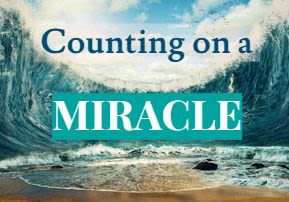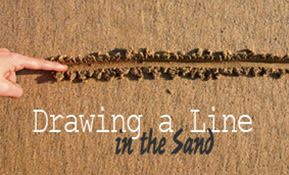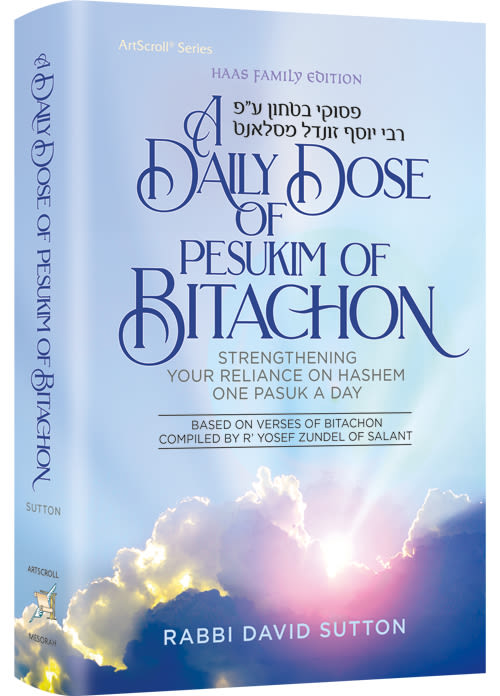
Beshalach: Counting on a Miracle
Instead of looking online for miracles, let's reflect on the world around us rather than pass the day mindlessly in front of the boob-tube.

Some people approach spirituality like their favorite news website, and are drawn to that which provides upfront and breaking news in the most ascetically pleasing way. These same folks who crave updated information every three minutes may argue that Judaism offers only outdated reports. After all, in this week’s parsha we read about the splitting of the Red Sea, and while that's pretty exciting, it did happen thousands of years ago – somewhat akin to reading newspaper articles from 1972.
With assimilation rates soaring, an earth-shattering miracle on the scale of the splitting of the Red Sea is long overdue. After experiencing the miraculous redemption in this week's Parsha, the Jews break out in joyous song and praise of God. There are no atheists in foxholes.
Many great rabbis, however, argue that the solution to today's spiritual disenfranchisement does not lie in the reappearance of open miracles like the ones reported the Torah. Such occurrences would only complicate and intensify our struggle to overcome our egos in the pursuit of holiness.
It seems obvious that if presented with an out-right miracle, any sane individual would immediately recognize the existence of God and repent on the spot. But that is not the case. Just look at Pharaoh. Sending one’s troops headlong into a large body of water would make him a prime target for a negligent lawsuit. The only explanation for such a ridiculous military maneuver was that Pharaoh actually expected his troops to cross the sea, just like the Jews did. This would only make sense if the splitting of the sea was a natural occurrence rather than Divine intervention.
The verse (Shemot 14:21) states, “…and God moved the sea with a strong east wind all the night, and He turned the sea to damp land and the water split.” By using a strong wind to bring about the opening of the sea, God provided Pharaoh with the option of doubting His role in the miracle. Pharaoh assumed that the sea split from the wind! It was a natural occurrence! Although any objective observer would point out that a sea never splits no matter how strong the wind, Pharaoh was determined to see what he wanted to see, and as a result he led his men to certain destruction.
Chazal says that miracles occur only to those who need no additional proof of God’s existence, or those who will not begin to believe in God regardless of what they see. Man is naturally biased towards intellectual dishonesty. People make up their minds before they know the facts and therefore their conclusions may have little bearing on reality. People who declare that they would believe in God if they were to see concrete proof of His existence, would most likely justify any miracle they witnessed with some scientific, natural, or any phenomenon, other than Divine intervention.
Why don't people recognize a miracle when they see one? Isn't a child being born or an apple falling off the tree at the exact moment of its ripeness miraculous? What about sun rise or gravity? Some claim that science has logical explanations for all these phenomena, while others are able to perceive miracles on a daily basis. It all depends on one’s outlook.
Man has free will, and that free will allows him to choose to have a relationship with God. By choosing to have a relationship with the Almighty, he becomes worthy of receiving a heavenly award. Conversely, when he denies God and refuses to behave according to the Almighty’s will (i.e. following the mitzvoth), he is punished.
Man is free to do a mitzvah or a transgression depending on his desire to acknowledge his Creator or to pursue his own desires. Because a miracle offers undeniable proof of God’s existence, it poses a challenge to man’s free will. Rabbi Eliyahu Eliezer Dessler brings a Midrash to illustrate this.
“At the moment that the Torah was given, when God tore open all seven heavens and revealed His glory in a way never occurred before and will never happen again, the Israelites were terrified. Moshe (Moses) calmed them, explaining, ‘Do not be afraid for God has come to test you’ (Shemot 20:17). What test was he referring to? The Rambam explains, ‘…after God has removed all doubts from your hearts, He will see whether you really love Him and desire Him and His commandments.’”
Rabbi Dessler asks, “Is the person who witnessed all this (the giving on the Torah) prepared to subdue his ego and follow God with love and devotion? Or did he prefer to reject all that he had seen and understood and choose to follow the inclination of his own heart? At the moment of maximum knowledge, there was the point of maximum test” (Strive for Truth, Volume 6). No matter what miracles a person may encounter, the ultimate test lies with the individual. He can either choose to acknowledge God’s existence and behave accordingly, or he can choose to deny God's existence.
Challenged by Truth
When a person is confronted with the truth of God’s existence as blatantly as the Jews were when they stood at Mount Sinai, life becomes more challenging. When God’s presence is revealed, a person’s free will becomes more limited and the consequences of a transgression become infinitely more severe. He can no longer claim, “I had no idea it was wrong!”
Instead of looking online for answers or waiting for miracles, we should search within our own hard drives and home pages. To appreciate the world and the miracles that occur around us each and every day, we must arouse our hearts and reflect on the world around us, rather than allowing ourselves to pass the day mindlessly in front of the boob-tube.
Instead of looking to God to perform miracles, we need to change our viewpoint and see the miracles that are constantly taking place around us. More importantly, we must be willing to change ourselves and grow as we uncover the beauty and depth of this miraculous universe. That is truly the test of the modern day. The proud soldiers of intellectual honesty who can look beyond the headline reports, and build their lives based righteous pursuits need not look to the ocean for miracles. Those that seek out spirituality in the modern day can be as inspiring to those around them as the splitting of the sea.












Tell us what you think!
Thank you for your comment!
It will be published after approval by the Editor.